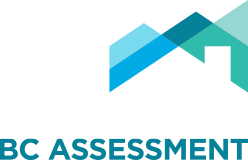This Fact Sheet describes the eligibility requirements for the school tax exemption under the School Tax Exemption and Refunds (Approved and Eligible Hydroelectric Power Projects) Regulation, B.C. Reg. 144/2005 (the “Regulation"), as amended effective January 1, 2022. Since these amendments only came into effect on January 1, 2022, they do not apply to the 2022 roll year, but only apply to the 2023 roll year and onward (unless subsequently amended).
What power projects are eligible?
To be eligible for the school tax exemption under the Regulation, as amended effective January 1, 2022, a hydroelectric power project must have only begun production of electricity on or after January 1, 2002, and
- be licensed to display the EcoLogoTM certified by Underwriters Laboratories; or
- be an eligible run-of-river project (one with the prescribed head pond storage capacity of no more than 24 hours of average annual flow) that has a contract to sell power to BC Hydro, with a term of at least 10 years, signed prior to January 1, 2005; or
- be a 'listed facility' as defined in section 1 of the Regulation.
Reference: School Tax Exemptions and Refunds (Approved and Eligible Hydroelectric Power Projects) Regulation, B.C. Reg. 144/2005.
What property improvements does this exemption apply to?
The exemption applies to the following improvements of an eligible hydroelectric power project:
- intake facilities and trash racks;
- tunnels and tunnel linings; and
- penstock, penstock foundations and penstock support structures.
For eligible run-of-river projects, this exemption also applies to weirs and associated control structures, however the exemption does not apply to a dam, a weir or any part of either that is part of a power project not classified as run-of-river.
How do power projects get the exemption?
The exemption is only available for projects that began production of electricity on or after January 1, 2002. The Assessor will confirm that a project meets this requirement. In addition, an owner of an eligible hydroelectric power project that is not a listed facility must provide the assessor of the area in which the power project is located with the following information no later than November 30 of the year proceeding the roll year in which the exemption is to apply. For run-of-river power projects (other than a listed facility):
- Written confirmation from a professional engineer certifying that as of October 31 in the year preceding the year for which the exemption is claimed, the head pond storage capacity is no more than 24 hours of average annual flow; and in addition, provision of one of the two following sets of information:
- Written confirmation from the owner or a senior executive officer of the corporation that the power project has a power purchase agreement with BC Hydro with a term of 10 or more years, signed before January 1, 2005; or
- Written confirmation from the owner or a senior executive officer of the corporation that the power project is licensed to display the EcoLogoTM certified by Underwriters Laboratories as of October 31 in the year preceding the year for which the exemption is claimed and that the current licensee is in good standing with that program.
For other hydroelectric projects (non run-of-river)(other than a listed facility):
- Written confirmation from the owner or a senior executive officer of the corporation that the power project is licensed to display the EcoLogoTM certified by Underwriters Laboratories and is a current licensee in good standing with that program as of October 31 in the year preceding the year for which the exemption is claimed.
Refunds for school tax paid before a project becomes exempt
Eligible hydroelectric power projects under construction may qualify for the exemption once they have EcoLogoTM certification or are added as a listed facility as defined in section 1 of the Regulation.
Once projects qualify for the exemption, they may apply for a refund of school tax paid on the eligible improvements during the three years preceding the first tax year in which the project was assessed as exempt by the Assessor.
Eligible hydroelectric power projects have a three-year window, following January 1 of the first year in which the project's eligible improvements were first assessed as exempt from school tax, in order to apply for a refund of school taxes paid on those improvements during that three year period. The refund also applies to listed facilities as defined in section 1 of the Regulation, provided that the application for refund is made within the three year window following January 1 of the first year in which the project was assessed as exempt.
All hydroelectric power projects that meet the production date requirements, but have not yet been assessed as exempt, will receive detailed inventory information on their projects from BC Assessment. It will be important to ensure the accuracy of this information as it will be used as the basis for calculating any refunds.
Information about the school tax exemption and refunds for independent power producers can be found online, at the Property Taxation Branch, Ministry of Finance.
Updated 07/2022
Disclaimer: Where information presented is different from legislation, legislation shall prevail.

